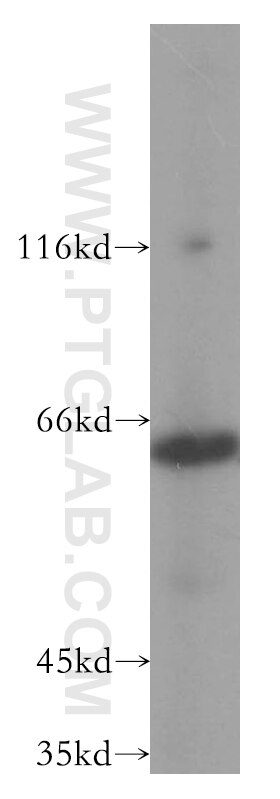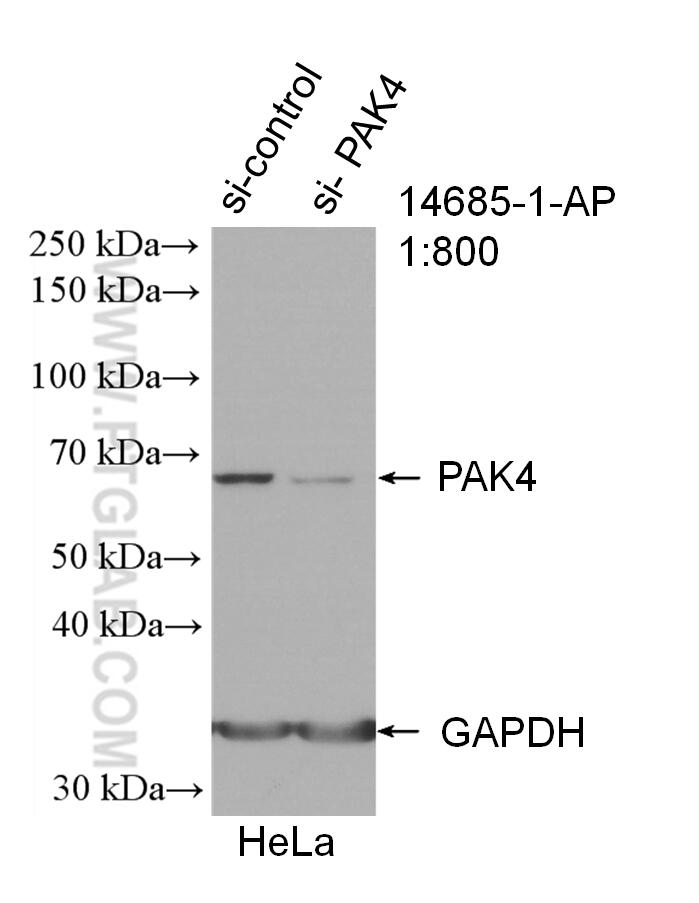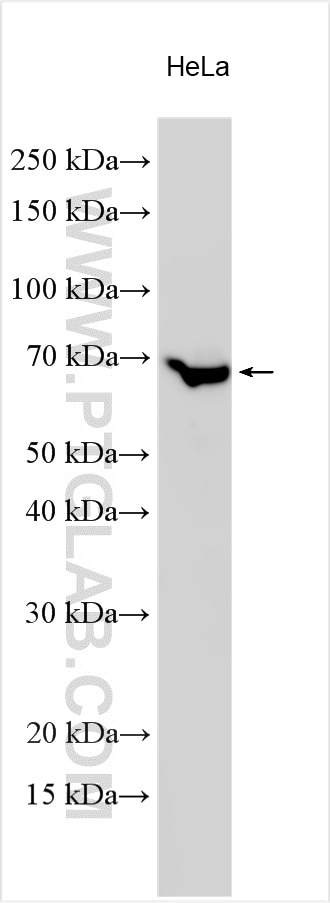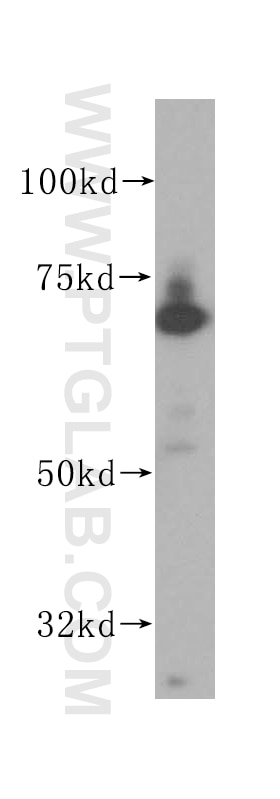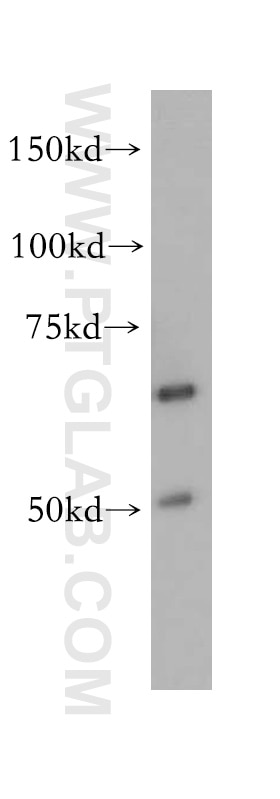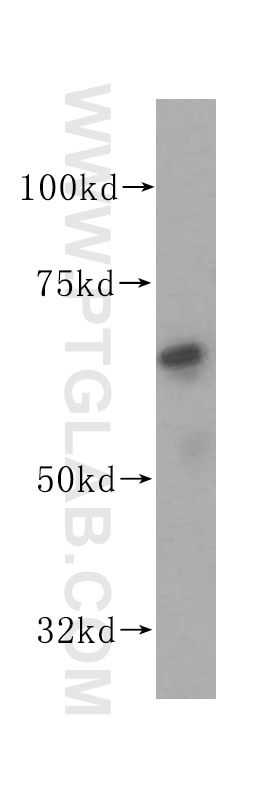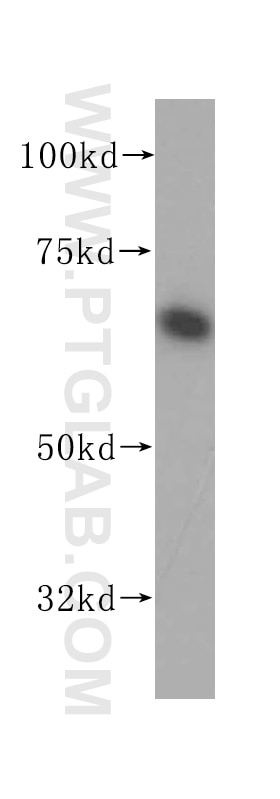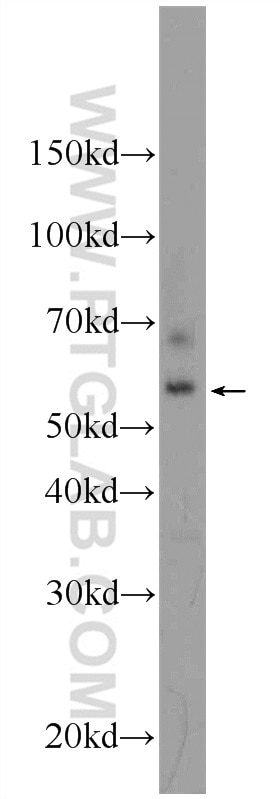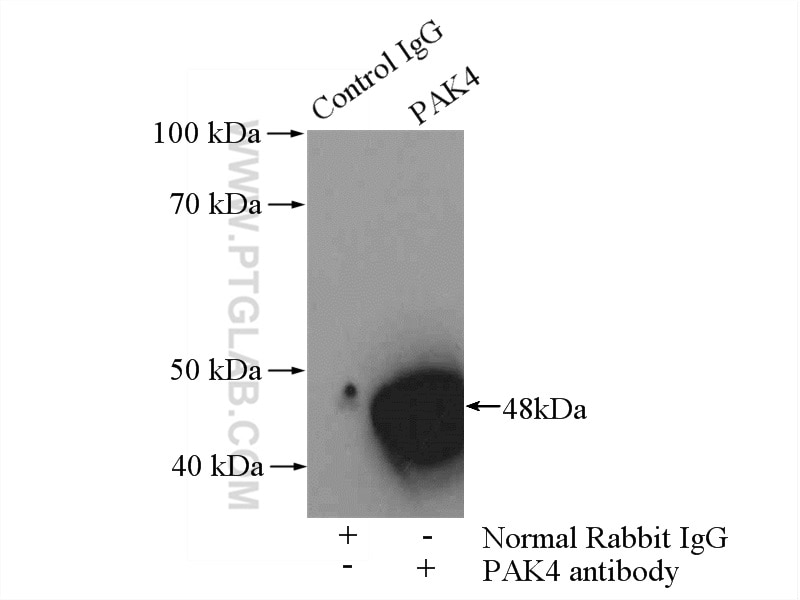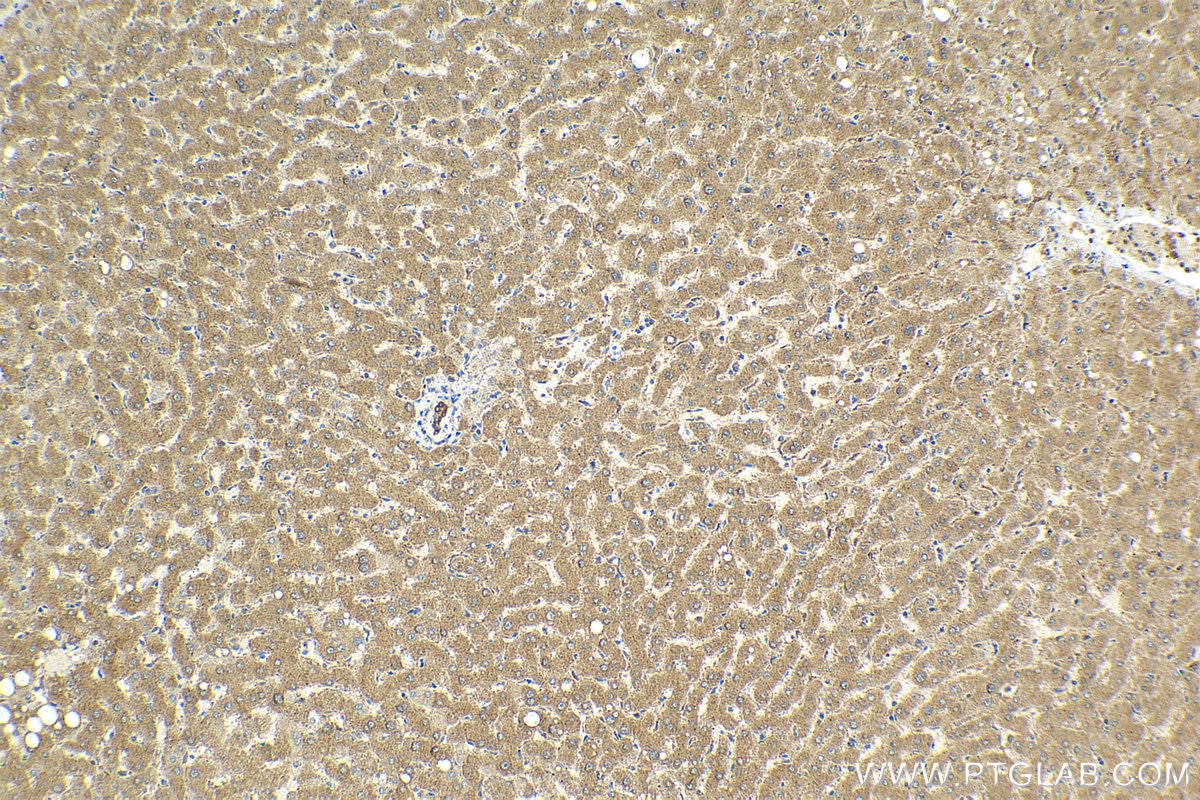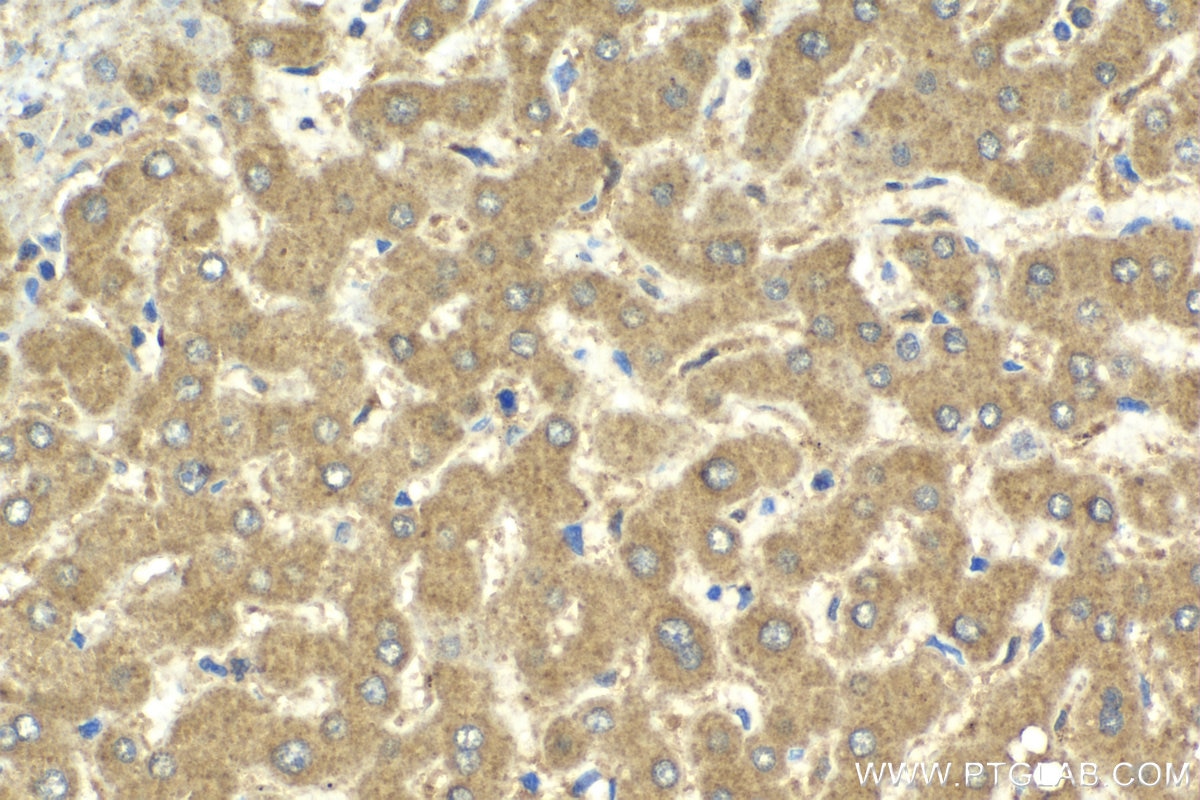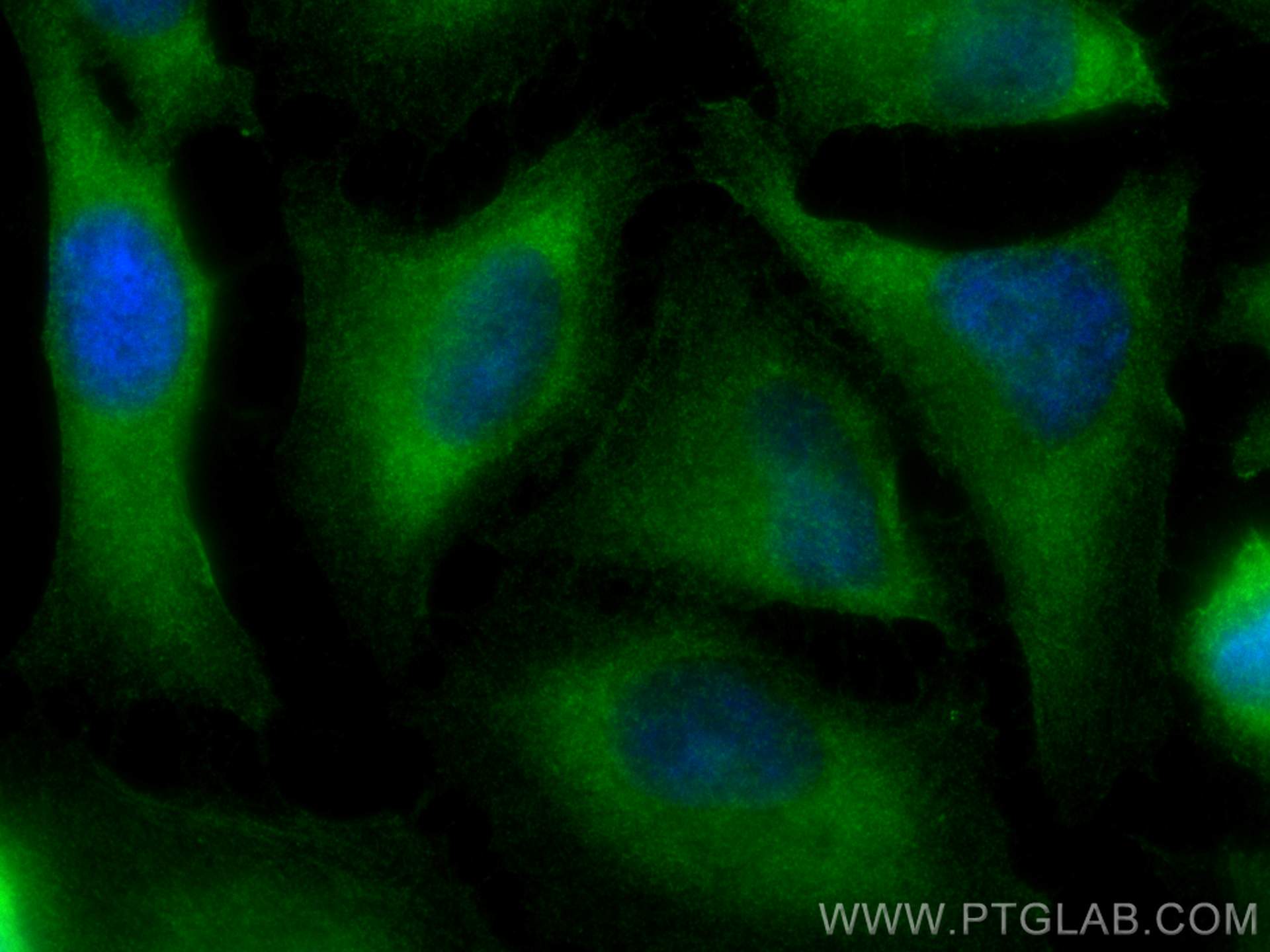Validation Data Gallery
Tested Applications
| Positive WB detected in | COLO 320 cells, HeLa cells, PC-3 cells, rat skin tissue |
| Positive IP detected in | mouse liver tissue |
| Positive IHC detected in | human liver tissue Note: suggested antigen retrieval with TE buffer pH 9.0; (*) Alternatively, antigen retrieval may be performed with citrate buffer pH 6.0 |
| Positive IF/ICC detected in | HeLa cells |
Recommended dilution
| Application | Dilution |
|---|---|
| Western Blot (WB) | WB : 1:500-1:2000 |
| Immunoprecipitation (IP) | IP : 0.5-4.0 ug for 1.0-3.0 mg of total protein lysate |
| Immunohistochemistry (IHC) | IHC : 1:250-1:1000 |
| Immunofluorescence (IF)/ICC | IF/ICC : 1:50-1:500 |
| It is recommended that this reagent should be titrated in each testing system to obtain optimal results. | |
| Sample-dependent, Check data in validation data gallery. | |
Published Applications
| KD/KO | See 8 publications below |
| WB | See 19 publications below |
| IHC | See 8 publications below |
| IF | See 7 publications below |
Product Information
14685-1-AP targets PAK4 in WB, IHC, IF/ICC, IP, ELISA applications and shows reactivity with human, mouse, rat samples.
| Tested Reactivity | human, mouse, rat |
| Cited Reactivity | human, mouse, rat |
| Host / Isotype | Rabbit / IgG |
| Class | Polyclonal |
| Type | Antibody |
| Immunogen | PAK4 fusion protein Ag5981 相同性解析による交差性が予測される生物種 |
| Full Name | p21 protein (Cdc42/Rac)-activated kinase 4 |
| Calculated molecular weight | 64 kDa |
| Observed molecular weight | 64 kDa |
| GenBank accession number | BC025282 |
| Gene Symbol | PAK4 |
| Gene ID (NCBI) | 10298 |
| RRID | AB_2158610 |
| Conjugate | Unconjugated |
| Form | Liquid |
| Purification Method | Antigen affinity purification |
| UNIPROT ID | O96013 |
| Storage Buffer | PBS with 0.02% sodium azide and 50% glycerol , pH 7.3 |
| Storage Conditions | Store at -20°C. Stable for one year after shipment. Aliquoting is unnecessary for -20oC storage. |
Background Information
PAK4(p21-activated kinase 4) is also named as KIAA1142. It belongs to the protein kinase superfamily.PAK4 regulates cell morphology, cytoskeletal organization, and cell proliferation and migration. It can also function as an antiapoptotic protein (PMID:14517283). It has 4 isoforms produced by alternative splicing. And it can be autophosphorylated on serine residues when activated by CDC42/p21 (PMID:11278822).
Protocols
| Product Specific Protocols | |
|---|---|
| WB protocol for PAK4 antibody 14685-1-AP | Download protocol |
| IHC protocol for PAK4 antibody 14685-1-AP | Download protocol |
| IF protocol for PAK4 antibody 14685-1-AP | Download protocol |
| IP protocol for PAK4 antibody 14685-1-AP | Download protocol |
| Standard Protocols | |
|---|---|
| Click here to view our Standard Protocols |
Publications
| Species | Application | Title |
|---|---|---|
Nat Commun Proximity proteomics identifies PAK4 as a component of Afadin-Nectin junctions.
| ||
Cancer Res Targeting PAK4 Inhibits Ras-Mediated Signaling and Multiple Oncogenic Pathways in High-Risk Rhabdomyosarcoma. | ||
Mol Ther Nucleic Acids ZEB1-Mediated Transcriptional Upregulation of circWWC3 Promotes Breast Cancer Progression through Activating Ras Signaling Pathway. | ||
Aging (Albany NY) PAK4 suppresses TNF-induced release of endothelial microparticles in HUVECs cells.
| ||
Mol Neurobiol Exosomes Derived from Meningitic Escherichia coli-Infected Brain Microvascular Endothelial Cells Facilitate Astrocyte Activation |
